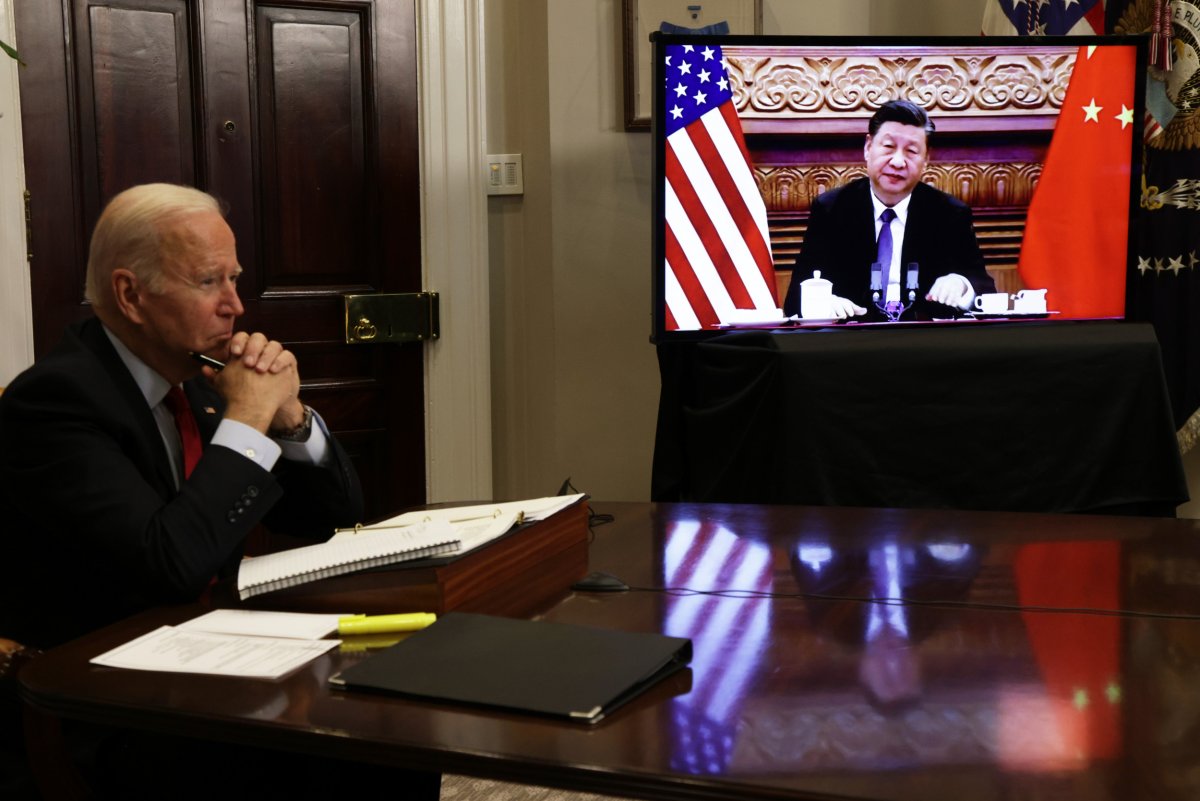Companies that once held an average supply of 40-days' worth of semiconductor computer chips before the pandemic now find their stockpiles reduced to a supply of just five days' worth of chips, a Tuesday report by the U.S. Department of Commerce revealed.
"Five days of inventory. No room for error," Secretary of Commerce Gina Raimondo said during a presentation of the findings. "That tells you how fragile this supply chain is."
Not only is the supply chain fragile, but it is also critical to America's national security, James Lewis, senior vice president and director of the Strategic Technologies Program at the Center for Strategic and International Studies (CSIS), told Newsweek.
Lewis said that at the moment America's chips are heavily tied up in the global supply chain. While America holds almost 50 percent of the global market share for chips as a leader in design and technology, Lewis noted that barely 10 percent of the chips are produced, through a process called "fabrication," within the country.

Instead, most of this work is carried out in Taiwan by the Taiwan Semiconductor Manufacturing Company (TSMC), and these chips are often tested and packaged in China, he noted. With Beijing ramping up its measures to exert control over Taiwan while also taking a more aggressive economic position against the United States, China holds the ability to exert great influence over the supply of chips to the U.S.
Given the importance of chips to both America's economy and national security, Lewis said this issue should be considered a great concern.
"No one should feel comfortable about a supply chain that depends on China, especially for an item that's as critical," he told Newsweek. "You can't run a modern economy without chips, and, of course, no modern economy would greatly damage national security."
Computers, phones, cars, and even toasters have chips, Lewis said. In the past, it seemed prudent for America to rely on China as a part of its chip supply chain when it appeared China was going to be friendly, Lewis said. Now that it has shown itself to be hostile to American interests, Lewis said the nation could benefit from adjusting its approach.
Right now, Congress appears poised to do so. Last year the Senate passed a bipartisan $250 billion tech investment bill with a $52 billion carveout for chip production. This item has stalled in the House since, but on Tuesday lawmakers presented the America COMPETES Act. While different from the Senate bill in that it allocates $45 billion for chips, it could represent a close step toward getting the investments put into law.
"I'm heartened by Congress' bipartisan work so far, and its commitment to quick action to get this to my desk as soon as possible," President Biden said in a statement. "Together, we have an opportunity to show China and the rest of the world that the 21st century will be the American century—forged by the ingenuity and hard work of our innovators, workers, and businesses."
Uncommon Knowledge
Newsweek is committed to challenging conventional wisdom and finding connections in the search for common ground.
Newsweek is committed to challenging conventional wisdom and finding connections in the search for common ground.
About the writer
Alex J. Rouhandeh serves as Newsweek's congressional correspondent, reporting from Capitol Hill and the campaign trail. Over his tenure with ... Read more
To read how Newsweek uses AI as a newsroom tool, Click here.








